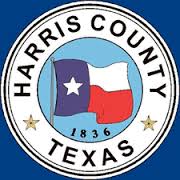The Chron endorses a Yes vote for the Harris County bond propositions.
The Castlewood subdivision in northeast Harris County was one of many neighborhoods blighted by Hurricane Harvey’s torrential rains. One too many floods inundated the shallow drainage ditches and cracked the asphalt streets. The well-kept character of the affordable single-family homes and small businesses frayed.
Five years later, thanks to the $2.5 billion 2018 flood control bond that Harris County voters approved, Castlewood has transformed. The asphalt roads have been replaced with fresh concrete and lowered to improve drainage. Roadside ditches were replaced with sidewalks and curbs, with an underground storm sewer.
This year, county commissioners are asking voters for another $1.2 billion bond, divided into three separate ballot referendums: $900 million for roads, drainage, and multimodal transportation; $200 million for parks; and $100 million for public safety facilities. If not for these periodic bonds, projects like the Castlewood improvements would either never happen or languish in the planning process for years until funds became available.
Every six to eight years, the county asks voters to authorize leveraging its strong credit — an AAA rating, according to Moody’s, S&P, and Fitch rating agencies — to issue debt for investments into improving county infrastructure. Some bonds are dedicated to specific types of projects — the 2018 bond that included the Castlewood improvements was put on the ballot after Harvey exposed the dire flood control needs across the county — while previous bonds, such as the 2015 $850 million infrastructure bond, were more broadly defined.
While these bonds typically get approved, many voters may be wondering why the county is once again asking them to go back to the well this year, particularly as each bond comes with a slight increase to their property tax bills. Why not fund projects through a pay-as-you-go model, such as the one that the city of Houston has for roads and drainage projects?
The reason is primarily statutory; even if the county wanted to adopt a pay-as-you-go system, it would require a change to state law. The Texas tax system essentially forces counties to use debt as the primary instrument for capital improvements. And because Harris County has a healthy cash balance and credit rating with a rapidly growing real estate market, it can borrow for cheaper than most jurisdictions.
If voters approve the 2022 bonds, each county precinct will receive a baseline of $220 million worth of funding, though some will receive more based on the “worst-first” criteria the county has adopted to prioritize projects based on the number of people they benefit.
The average homeowner would pay an additional $32 per year in property taxes for the life of the bond program — 25 years — based on estimated 2022 tax values. But voters likely won’t see that large of an increase for years, because the county continues to retire more and more debt each year. For instance, the county is spending $54 million less on debt than it did four years ago and will pay off approximately $193 million of its general obligation debt next year. And as more properties get built every year across the county, the tax burden will be spread out even further.
See here for the background. Bond issuances usually pass, and I don’t see anything to suggest these will have much trouble. There are also city of Houston bonds on the ballot, but as of Monday evening the Chron had not weighed in on them yet. I don’t know if their decision to not endorse in the non-criminal courts will carry over from the primaries to the general; if so, then those races still need their attention as well. Otherwise, I think they’re basically done.

